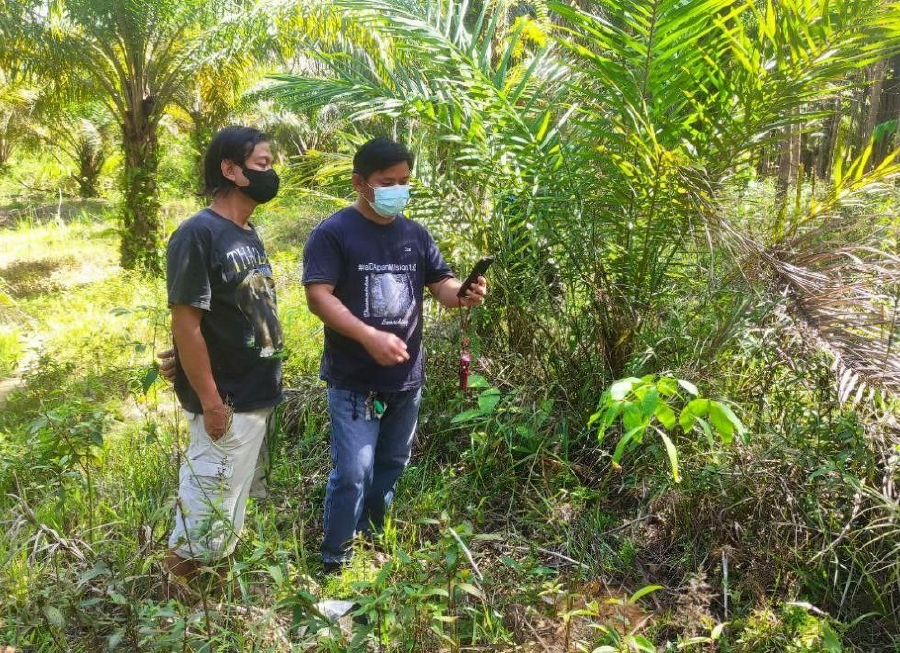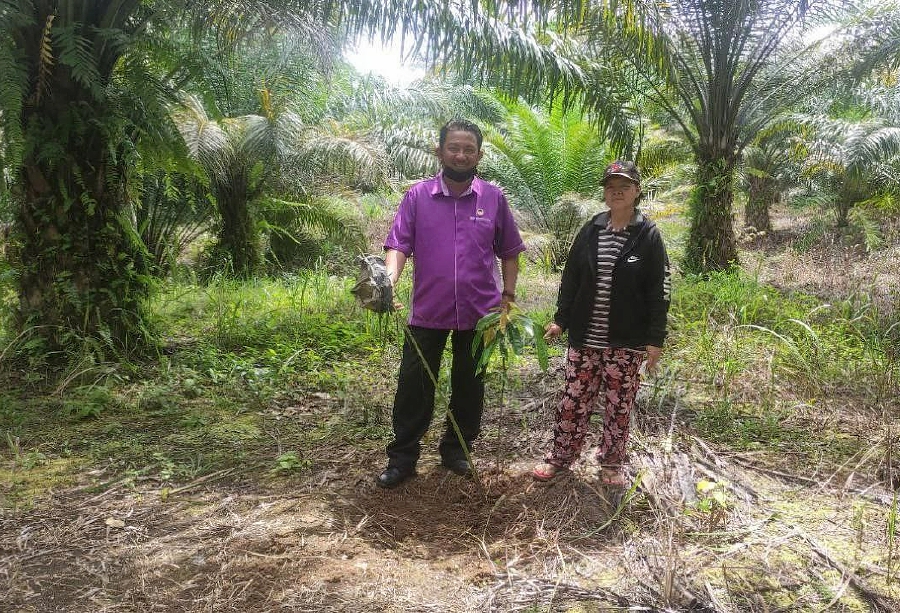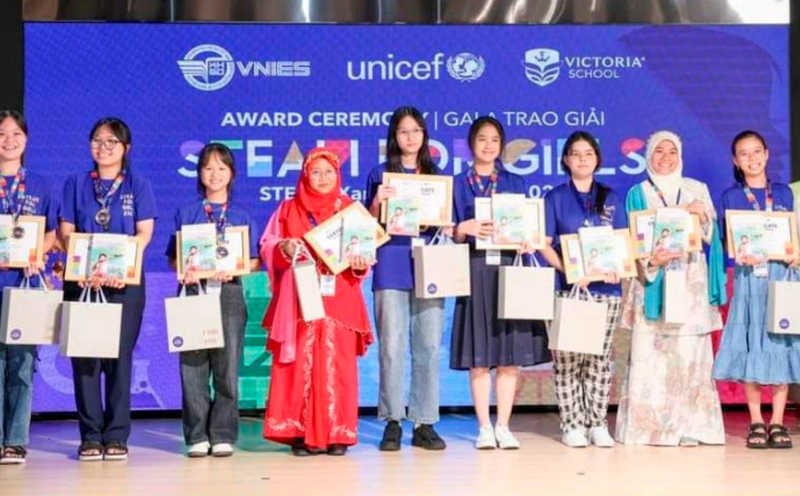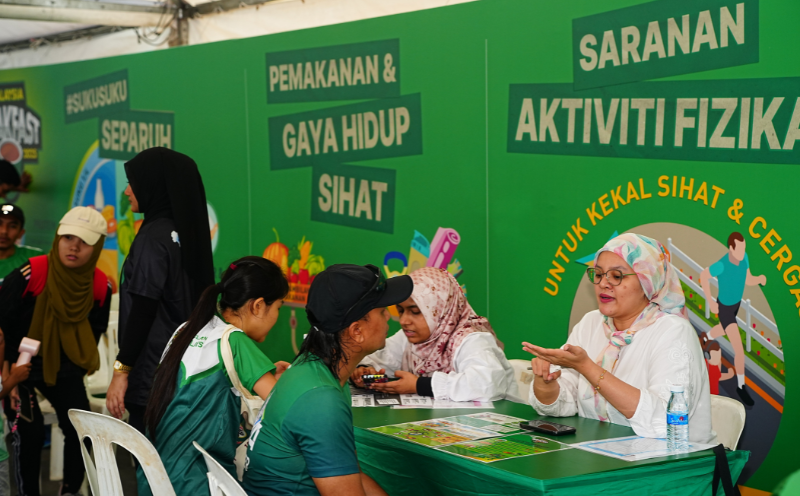KOTA KINABALU: Oil palm smallholders in Tongod district are keen to shift to agroforestry (cultivation of fruit and rubber trees), said Forever Sabah in a statement today upon the completion of a two-year pilot project.
The project was carried out in collaboration with the Sabah Forestry Department and was funded by the UNDP-Orang Asal/Asli Micro-Grant Facility.
"To advance sustainability in global palm oil market, the Sabah government is pushing for jurisdictional approach to the certification of the Malaysian Sustainable Palm Oil (MSPO) and Roundtable on Sustainable Palm Oil (RSPO) standards by 2025.
"A jurisdictional approach means cost-effectiveness in lifting the palm oil supply chain in the state to better standards and practices.
"With the global scrutiny and demand in palm oil, Sabah seeks competitive edge through higher standards of governance and sustainability.
"MSPO standards are legally mandated, and leading plantations in Sabah have already committed to the RSPO certification, but international certification is only just beginning for the state's 30,000 to 50,000 independent smallholders," it said.
Forever Sabah is a civil society organisation and one of the Jurisdictional Certification Steering Committee members.
It said among the challenges is the "no deforestation" rule under international standards. Oil palm production in Sabah's forest reserves are also not allowed except in areas designated by the state government.
In central Sabah, studies found that 20 per cent of oil palm smallholdings are located at designated forest reserves; especially in Class Two production forests where indigenous communities often claim their Native Customary Rights.
These plots are mostly situated along the boundaries and comprise less than three per cent of the total forest reserves. Therefore, their impact on the forests is not large, but their impact on lives and wellbeing are profound among some of the poorest communities.

"In search of solutions, Joannes Wasai and colleagues from Forever Sabah's Tongod field team approached the communities of Kampung Linayukan, Kampung Langkabong and Kampung Maliau who have been growing oil palm in the designated community-use zone of Trus Madi Forest Reserve to find out if they would be prepared to shift from oil palm into agroforestry.
"The response of farmers was enthusiastic. Instead of the targeted 20 smallholders growing 50 acres, the project ended up with 41 farmers seeking to transition out of oil palm in 250 acres.
"Oil palm may have high returns and high prices these days, but producers say it is risky when a whole community depends on a single-income source. Some farmers whose lands were not inside the reserve wanted to join, and 12 people who were not part of the programme attended the training sessions jointly conducted with Kivatu Nature Farm.
"These courses went beyond tree-planting to include entrepreneurship and other ways of agricultural value-addition (like bottling 'sambal tuhau'). Around 40 per cent of the participants were women. Forever Sabah finds women often take the lead in improving oil palm management," it said.
According to Forever Sabah, participating smallholders received seedlings of rubber, red durian, white durian, wild mango (bambangan), langsat and others.
"Every seedling planted is georeferenced by the farmers using their handphone camera and an open data kit app called KoboCollect. This means that survival and care can be monitored online. Currently, data shows over 13,000 seedlings were established between the oil palm rows that will now be phased out as they age."
A participant from Kampung Langkabong, Nelson Liddy, said this programme would enable him to diversify his income by selling local red durian (marang) that had high market demand.
Nondok Kulam from Kampung Linayukan said it was hard for him to maintain his oil palm plot inside the forest reserve due to the poor roads and steep slopes.
He wants to plant fruit trees.
"One of the women who attended the training, Huilim, also from Kampung Linayukan, told us she was particularly excited about the training on 'cantuman tampang' (Marcotting), a traditional method of cloning fruit trees.
"Another farmer, Lukius from Kampung Langkabong, shed light on the strong involvement of women when he explained that it is his daughters who have shown an aptitude for agronomic innovation. Therefore, it is to them that he is handing over management of the family land," said Forever Sabah.
Meanwhile, Sean Andrew Labansing, senior policy manager and acting director at Sabah's Jurisdictional Certification Secretariat, observed that Sabah needs to "innovate towards solutions that phase out smallholder oil palm production in forest reserves by supporting these communities in practically and environmentally restorative livelihoods".
Chief Conservator of Forests Datuk Frederick Kugan said the forestry department appreciated partnerships that respected the ecological integrity of forests and improve villagers' lives.










